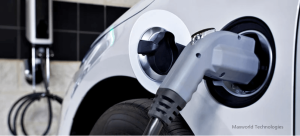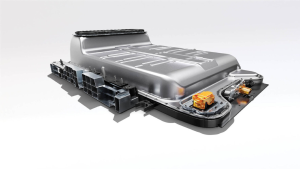Advantages of Lithium Batteries Over Traditional Types
Introduction
With its many advantages over more conventional battery types like lead-acid and nickel-cadmium, lithium batteries have completely transformed the energy storage market. Lithium batteries are rapidly taking the lead in a variety of applications, from consumer electronics and electric cars to industrial usage and renewable energy storage. Their lower weight, longer longevity, and higher energy density are the reasons behind this. This article explores the key advantages of lithium batteries over traditional battery types, highlighting their impact on various industries and their potential to shape the future of energy storage.

High Energy Density
Superior Storage Capacity
The great energy density of lithium batteries is one of their biggest benefits. Energy density is the measure of a battery’s capacity to store energy relative to its mass or volume. Comparing lithium batteries to conventional lead-acid and nickel-cadmium batteries, the former have a substantially lower energy density. They can thus store more energy in a lighter and smaller container, making them ideal for applications where weight and space are critical factors.
- Electric Vehicles (EVs): EVs are more practical and appealing to customers as they can go farther between charges thanks to the high energy density of lithium batteries.
- Portable Electronics: Lithium batteries provide the advantages of being small and having a longer battery life for devices like laptops, tablets, and smartphones.
Weight Reduction
In many applications, the reduced weight of lithium batteries is a significant benefit. For instance, in the aviation and automotive industries, reducing the weight of the battery pack translates to better fuel efficiency and performance.
- Drones and UAVs: The lighter weight of lithium batteries allows drones and unmanned aerial vehicles (UAVs) to travel farther and carry greater payloads.
- Wearable Technology: The comfort and usefulness of wearable technology, such fitness trackers and smartwatches, are improved by lightweight lithium batteries.
Longer Lifespan
Extended Cycle Life
Compared to other battery types, lithium batteries have a longer cycle life. Cycle life is the number of complete charge and discharge cycles that a battery can sustain before a certain proportion of its initial capacity is lost. Lithium batteries can typically endure hundreds to thousands of cycles, significantly outlasting lead-acid and nickel-cadmium batteries.
- Renewable Energy Storage: The extended lifespan of lithium batteries makes them ideal for storing energy generated by solar panels and wind turbines, providing a reliable and long-term solution for renewable energy systems.
- Electric Vehicles: Owners of electric vehicles will pay less overall since longer battery life means fewer battery replacements need to be made.
Low Self-Discharge Rate
Compared to other battery types, lithium batteries have a lower self-discharge rate. The slow loss of charge in a battery even while it is not in use is known as self-discharge. Because lithium batteries have a low self-discharge rate, they can hold a charge for extended periods of time, which increases their dependability and convenience for a range of uses.
- Backup Power Systems: Reliable backup power for essential systems, such emergency lights and uninterruptible power supply (UPS), is supplied by lithium batteries.
- Medical Devices: The low self-discharge rate is crucial for medical devices that require reliable power over extended periods, such as pacemakers and defibrillators.
Faster Charging
Reduced Charging Time
Lithium batteries can be charged much faster than traditional battery types, thanks to their advanced chemistry and design. For applications where downtime must be avoided, faster charging times are a big plus.
- Consumer Electronics: Quick charging capabilities are essential for modern devices, allowing users to recharge their smartphones, laptops, and other gadgets quickly.
- Electric Vehicles: Faster charging reduces the time EV owners spend at charging stations, making electric vehicles more convenient and practical for everyday use.
Improved Efficiency
Lithium batteries have a better charging efficiency, which allows them to retain more energy and reduce energy loss throughout the charging process. Reduced energy expenses and a more environmentally friendly energy storage option result from this increased efficiency.
- Renewable Energy Systems: Enhanced charging efficiency is beneficial for renewable energy systems, ensuring that more of the energy generated by solar panels and wind turbines is stored and utilized effectively.
- Industrial Applications: Efficient charging helps reduce operational costs and improve the overall performance of battery-powered industrial equipment.
Environmental Impact
Reduced Toxicity
Lithium batteries are generally less toxic and more environmentally friendly than traditional lead-acid and nickel-cadmium batteries. Lead-acid batteries contain lead, a hazardous material, while nickel-cadmium batteries contain cadmium, a toxic heavy metal. Lithium batteries, on the other hand, are a safer and more environmentally friendly choice since they require less toxic components.
- Recycling and Disposal: The reduced toxicity of lithium batteries simplifies recycling and disposal processes, minimizing environmental impact and health risks.
- Green Energy Solutions: The environmental benefits of lithium batteries make them a preferred choice for green energy solutions, such as solar power storage and electric vehicles.
Energy Efficiency
Compared to other battery kinds, lithium batteries are more energy-efficient, which means that during discharge, they can hold more energy and take less energy to charge. Reduced greenhouse gas emissions and overall energy consumption are results of this increased energy efficiency.
- Sustainable Transportation: The energy efficiency of lithium batteries supports the development of sustainable transportation options, such as electric cars, buses, and bicycles.
- Smart Grid Integration: Efficient energy storage is crucial for integrating renewable energy sources into smart grids, enhancing the stability and sustainability of the power grid.
Versatility and Scalability
Wide Range of Applications
The versatility of lithium batteries allows them to be used in a broad spectrum of applications, from small portable electronics to large-scale energy storage systems. Their adaptable nature makes them suitable for various industries and use cases.
- Consumer Electronics: Numerous gadgets, such as cameras, computers, tablets, cellphones, and portable speakers, are powered by lithium molecules.
- Electric Vehicles: They are the preferred power source for electric cars, motorcycles, scooters, and bicycles.
- Renewable Energy Storage: Energy produced by wind turbines and solar panels is stored using lithium batteries, which offer a dependable and effective energy storage option.
Scalability
Lithium batteries can be easily scaled to meet different energy storage needs, from small battery packs for personal electronics to large battery arrays for industrial applications. Lithium batteries can meet the expanding need for energy storage across a range of industries because to their scalability.
- Grid Energy Storage: Grid energy storage is provided by large-scale lithium battery systems, which improve grid stability and make it possible to integrate renewable energy sources.
- Telecommunications: Scalable lithium battery solutions ensure reliable backup power for telecommunications infrastructure, maintaining continuous connectivity during power outages.
Safety Features
Built-In Safety Mechanisms
To avoid short circuits, overcharging, and overheating, modern lithium batteries are equipped with sophisticated safety mechanisms. By lowering the possibility of accidents and boosting user confidence, these safety features guarantee the safe functioning of lithium batteries.
- Battery Management Systems (BMS): BMS technology monitors and manages the performance of lithium batteries, optimizing charging and discharging processes and preventing potential safety issues.
- Thermal Management: Advanced thermal management systems help maintain optimal battery temperatures, preventing overheating and improving overall safety.
Conclusion
Lithium batteries offer numerous advantages over traditional battery types, including higher energy density, longer lifespan, faster charging times, reduced environmental impact, versatility, scalability, and enhanced safety features. Lithium batteries are the best option for many tasks, including industrial applications, renewable energy storage, consumer gadgets, and electric cars. Lithium batteries will become more and more significant as technology develops, influencing how energy storage is used in the future and promoting sustainability and innovation in a variety of sectors.






